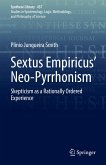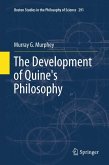This volume, then, offers an exploration of the impact of skepticism in both its historic and geographic dimensions, providing readers with a reevaluation of the role played by skepticism itself. The detailed narrative covers every identifiable instance of skepticism in the Eighteenth Century, tracing its influence of thought on major British, French and German philosophers, and including lesser-known figures whose contemporary influence requires their inclusion in a comprehensive study such as this.
This volume, then, offers an exploration of the impact of skepticism in both its historic and geographic dimensions, providing readers with a reevaluation of the role played by skepticism itself. The detailed narrative covers every identifiable instance of skepticism in the Eighteenth Century, tracing its influen
ce of thought on major British, French and German philosophers, and including lesser-known figures whose contemporary influence requires their inclusion in a comprehensive study such as this.
Dieser Download kann aus rechtlichen Gründen nur mit Rechnungsadresse in A, B, BG, CY, CZ, D, DK, EW, E, FIN, F, GR, HR, H, IRL, I, LT, L, LR, M, NL, PL, P, R, S, SLO, SK ausgeliefert werden.
"This volume is another instance of the enduring influence of Richard Popkin's pioneering work on the history of modern skepticism. ... the volume as a whole is a welcome addition to the literature on modern skepticism. ... The present collection is clear proof that scholarship on the history and philosophical significance of modern skepticism is as vigorous as ever." (Diego E. Machuca, Journal of the History of Philosophy, Vol. 53 (3), July, 2015)









